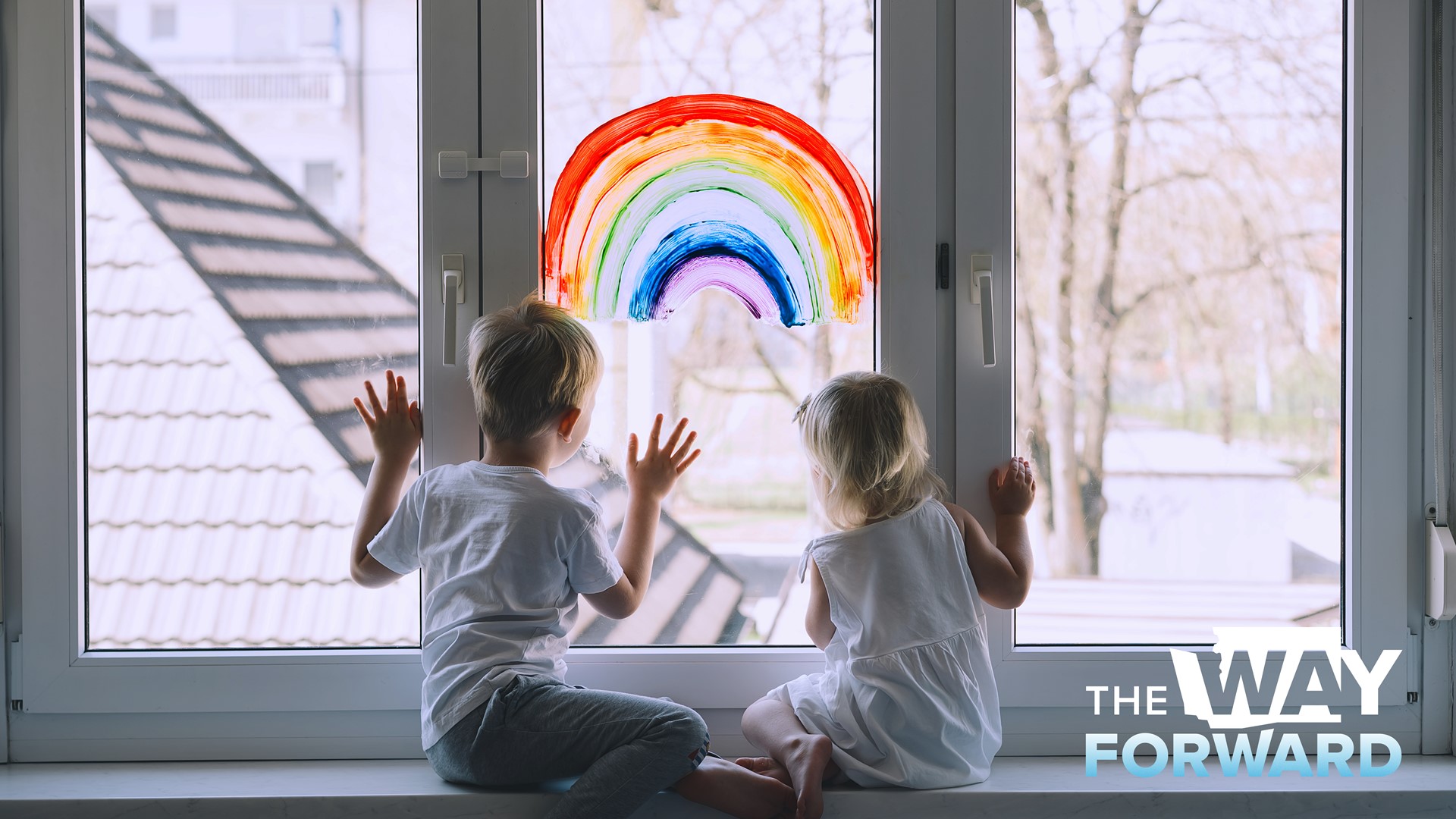SEATTLE — Since the COVID-19-related restrictions began in Washington state, nearly every aspect of our lives has changed -- including the way we interact with each other. As of mid-May, many essential workers are required to wear masks, office workers have moved to a remote-working set-up, and many of us haven't seen our extended family or friends in weeks.
It can be hard to find positivity during times of uncertainty, but Dr. Ali Mokdad, Professor of Health Metrics Sciences at the Institute for Health Metrics and Evaluation (IHME) and Chief Strategy Officer for population health at UW, is optimistic about our state's progress.
"We feel like that light is at the end of the tunnel -- we see it. We're not out of danger yet, but we're headed in the right direction," he said. "We have achieved a lot by closing down fast, and in my opinion, we're going to come out of it faster than other states, and we are going to recover our economy faster than other states."
Whether we maintain that progress going forward will depend on the choices we collectively make right now. For example, to reopen schools the infection rate should be lowered significantly from approximately 200 positive tests per day to 8.
"We're not close to any decision of opening schools. And again, this virus is in charge. Unfortunately, right now, we have to wait, and be patient contain our urge to go back to normal."
Pediatrician and Associate Medical Director for Medical Policy at Premera Blue Cross, Dr. Neil Kaneshiro, recommends paying close attention to our children's physical and mental well-being during this period of social isolation.
"It's important for us as adults, parents and caregivers for these children to look really closely for cues of anxiety, stress, and concern that you might see in your child through their behaviors, and ask them about it," said Dr. Kaneshiro, "If we don't explain that to them properly, they will actually make up things in their own mind that are much more horrible than what the real situation is."
When it comes down to society as a whole, inequities in health, safety, and economic outcomes have become even more evident.
"What we do know is that for communities of color and non-English speaking communities, they are harder hit with the severity from this coronavirus," said Dr. Benjamin Danielson from the Odessa Brown Children's Clinic , "It's just enormous. It's really devastating."
Truly facing this reality, he said, is something that can only be done if everyone works collectively to combat the effects of the virus.
"I really hope that this is eye-opening and awakening for us as a society -- as communities, as a county, and as a state. We have this opportunity right now to decide not to shut our eyes, not to turn away from some of the challenges that [...] we've been facing for a long time."
We'll have to navigate through life carefully to keep ourselves safe while also protecting others -- and live knowing our daily actions will affect our future.
Dr. Mokdad is confident we make it through, "We should come out of this stronger and all those people who died and sacrificed their lives, all the people who lost their jobs and accrued a lot of financial costs, their sacrifice didn't go for nothing."
Additional Resources
- Article: Pay attention to mental health as quarantine continues
- Stay up to date on vaccines and viruses: Visit the CDC's website.
- Keep up on the COVID-19 Projections from Dr. Mokdad and the IHME
This segment is part of the virtual town hall The Way Forward hosted by KING 5 and Premera Blue Cross. We asked viewers to share with us their biggest questions and concerns about life post-pandemic and gathered regional experts to provide the answers. All segments are available at king5.com/thewayforward. Sponsored by Premera Blue Cross.

